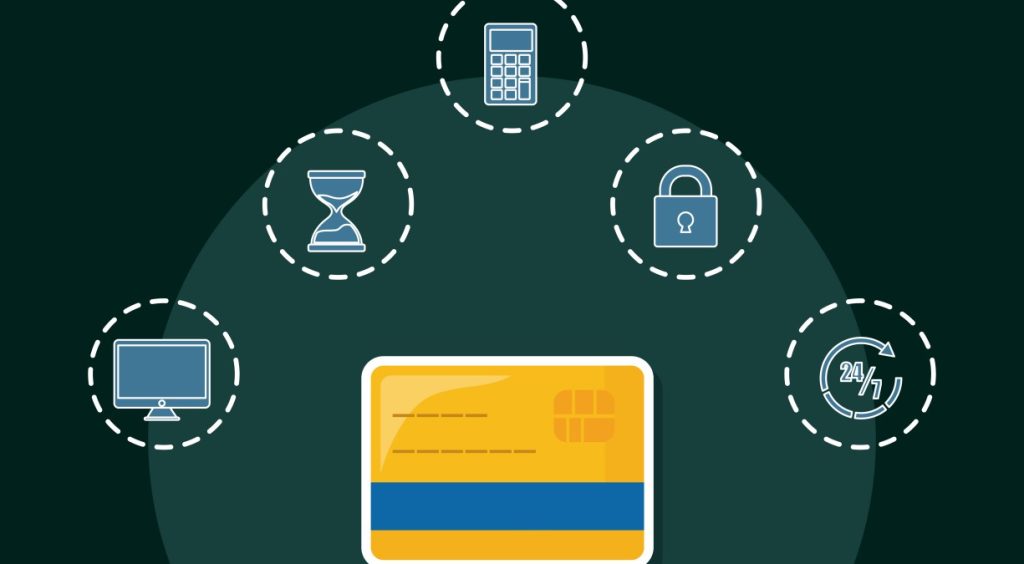What is a Credit Card Acquirer?
An acquirer is the financial institution that processes credit card payments for merchants. They’re basically the main support system in the chargeback world and give merchants the tools and help needed to stop and fight payment disputes. They also take care of all the technical parts of every transaction.
Acquirers are the main link between businesses and card networks. They manage merchant accounts and take care of the entire payment process. Without an acquirer, merchants just can’t accept card payments or handle disputes when customers challenge their purchases.
The acquirer you choose will directly affect how chargebacks turn out. Better acquirers use fraud detection systems that can catch suspicious transactions before they become expensive disputes. They have expert knowledge about dispute management that can save thousands of dollars in contested payments. When facing chargebacks, experienced acquirers provide merchants with support teams who understand card network requirements and know how to build strong defense cases.
More than processing payments, acquirers also protect businesses against chargebacks. They offer fraud detection tools, walk merchants through dispute management, and represent them throughout the entire chargeback process. That’s why the choice of acquirer is so important for preventing chargebacks successfully and winning the disputes that need contesting.
How It Works (and Affects Chargeback Prevention)
When processing a payment, the acquirer takes care of everything from start to finish. This all happens in just a few seconds behind the scenes.
First, they get the authorization request and send it through the card networks to reach the customer’s bank. The bank then either approves or declines the transaction, and the acquirer sends that answer back immediately.
After the bank approves it, they take care of the settlement process that actually transfers the funds to the merchant account.

The acquirer also helps out when chargebacks come up. They get dispute notifications from the customer’s bank and notify merchants immediately. Most acquirers give merchants somewhere around 7 to 10 days to respond with evidence, though some disputes need faster answers – so it’s best to move fast. They’ll take the documentation and argue the case to the card networks.
What’s great is that merchants can actually stop problems instead of just reacting to them. The acquirer watches transactions for anything suspicious and catches possible fraud before it turns into a chargeback. They keep track of chargeback ratios and send warnings when levels are getting close to dangerous thresholds. Most acquirers have early warning systems that allow refunding disputed transactions before they become formal chargebacks.
Every chargeback costs the original transaction amount plus fees that can run as much as $100 per dispute. And staying below industry thresholds is necessary to keep processing payments.
But there are some downsides. If chargeback ratios stay too high for too long, acquirers can shut down the account without much warning. This leaves merchants scrambling to find a new payment processor.
Common Scenarios
A strong acquirer will look over the response before sending it in. Most merchants don’t even know this difference exists. These firms know exactly what card networks want to see and can identify weak points in the case immediately. Some acquirers just send a basic email with standard instructions. Others will actually pick up the phone and help build a real strategy.
Let’s say friendly fraud cases start to pile up over a few weeks. The acquirer should help put stronger checks in place before it gets out of hand. They might recommend adding address verification or asking for signatures on bigger purchases. The best acquirers keep an eye on chargeback ratios and let merchants know when they’re approaching penalty levels.
Friendly fraud can go from a small problem to something that completely kills a business in just a few weeks. Each case that goes unchallenged tells fraudsters that the business is an easy target. The chargeback ratio keeps climbing while merchants are still trying to understand what’s going on.

When looking for a new payment processor, check how each acquirer manages disputes. Some will charge extra fees for every chargeback response they process – and those fees add up fast. Others include dispute management in their standard service. Make sure to ask them how many cases they win and how fast they respond.
The difference between a supportive acquirer and one that leaves you hanging can make or break your dispute. A strong partner will answer questions within hours, not days.
Every hour matters when responding to a dispute. Every delay gives the cardholder’s bank more time to build their case against you.
Requirements & Timeframes
When an acquirer sends a chargeback alert, merchants usually have somewhere between five and ten days to respond. This deadline comes up fast, and missing it means automatically losing the dispute. Once that deadline passes, there’s no way to appeal. I’ve seen plenty of merchants who don’t know just how short this timeframe actually is.
The acquirer needs certain paperwork from merchants based on the chargeback reason code. Each reason code needs different types of proof. A fraud dispute needs different paperwork than a service dispute, so sending the same forms every time won’t work. They want to see that you understood the actual problem.
Most acquirers get concerned if chargeback ratios go above one percent. Staying above that line for too long means running into penalties or even account closure. Some acquirers are even stricter and set their limits at half a percent, especially for newer merchants.

Once a merchant goes over that line, the account enters risky territory. Acquirers check these ratios every month, and too many disputes could mean losing payment processing altogether.
While all that’s happening, merchants need to stay on top of PCI DSS standards too. Your acquirer keeps an eye on this because not following security requirements makes chargebacks more likely and harder to fight. Being behind on security standards creates problems when trying to dispute transactions.
High-risk merchants sometimes find out their acquirer has put some of their money aside as reserve funds. This money just sits there to protect against future chargebacks and ties up cash flow. The reserve amount is based on the type of business and transaction history. But it can be enough to hurt day-to-day operations.
Frequently Asked Questions
How do I pick the right acquirer for chargeback management?
When looking for the right acquirer, most merchants only think about rates - it makes sense why rates catch your attention first. But the cheapest option usually ends up costing more down the road.
Industry expertise should be at the top of the list. An acquirer who understands your type of business can tell the difference between transactions and fraud attempts. They won't mark legitimate sales as suspicious or close accounts without warning. If they close an account, revenue stops coming in right away. Customers won't be able to pay and cash flow just stops.
Technology integration is another big one to remember. Ask how their systems work with what you already have and if everything needs to be rebuilt. No one wants to pay for that. Reporting tools show patterns and catch problems before they get worse. Bad reporting means it's hard to know what's going on when disputes start coming in.
Support quality is where the difference between acquirers shows. When chargebacks come in, quick response times and people who know what they're doing matter. Some acquirers take days to respond while others get back in hours. The longer the wait, the more money gets lost. The dispute window gets smaller while fees add up.
Don't forget about their dispute management tools too. The best acquirers give you chargeback alerts so you hear about disputes before they become official. They might also manage disputes automatically so there's less to worry about dealing with them directly.
What fees do acquirers charge for chargebacks?
When a chargeback comes in, the $15 to $25 fee is the beginning. Payment processors also charge extra fees for documents and fees when you challenge the chargeback. These costs grow much faster than most business owners think they will. These fees get taken from accounts within just a few days after someone disputes a charge.
The bigger problem starts with too many chargebacks. As chargebacks pile up, the penalties get worse and they can hurt cash flow. Payment processors won't just wait around - they'll start charging monthly fees just to monitor accounts, or they'll raise processing rates. Some processors will even hold back a part of sales revenue in case more chargebacks come later.
The products sold are gone, plus what was paid to process that sale in the first place. Without fighting the chargeback, the business takes all the losses. If you fight it and lose anyway, you'll pay those extra challenge fees on top of everything else already lost.
Here's what hurts - with disputes, processors might send cases to a final review process. Those reviews can cost $500 or more for each one. Every single case turns into a big financial choice. At that point, money gets spent on something that started as a simple customer dispute.
Can I switch acquirers if I'm having chargeback problems?
Merchants who have chargebacks sometimes want to switch to a new acquirer. But it's harder than just finding someone new to work with. Chargeback history is recorded in industry databases like MATCH and these records stay there for years - making it much harder to get approved by new acquirers.
Most new acquirers check track records before they decide to work with merchants. They're selective about merchants who have high chargeback ratios because it means more risk for them too.
Acquirers look at risk the same way banks do. Their profit margins go down when chargeback costs increase and makes them selective about who they work with. High ratios mean losses they won't accept.
The problem usually isn't the current acquirer. Most chargeback problems come from vague product descriptions, bad customer service, or confusing billing statements. These problems follow merchants around no matter which processor gets used. Switching to someone new won't fix what's actually wrong.
It's worth trying to improve your situation with the current acquirer first. Merchants can negotiate better terms, ask for tools that prevent chargebacks, or get better service. Many acquirers will work with merchants if they show they're trying to cut back on chargebacks.
The current acquirer already knows how the business works and how payments get processed. They've invested in creating the account - this gives advantages you won't find with someone new.
If switching does become necessary, then merchants have to show that they've made changes. Track improvements over a few months and create a plan that explains how the problems got fixed. When talking to new acquirers, be honest about any of your previous problems; they want to see proof that what was causing the chargebacks has been fixed.
 Call (844) NO-DISPUTES
Call (844) NO-DISPUTES
Leave a Reply